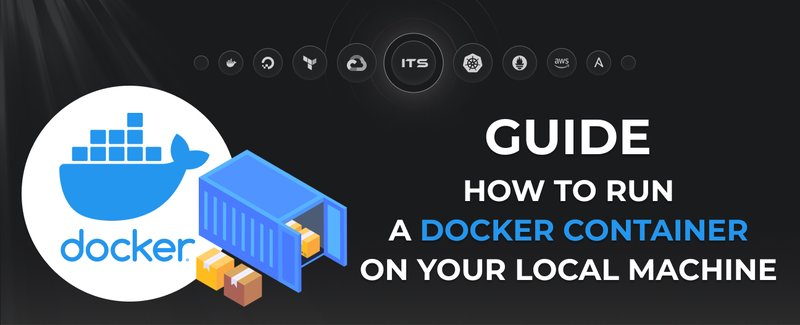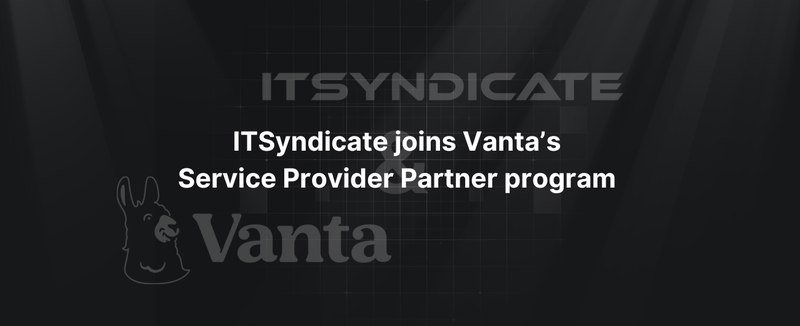The rise of cloud computing
The rise of cloud computing has been nothing short of revolutionary. With annual growth rates hovering around 35% and a market value exceeding $150 billion, cloud computing is reshaping how businesses operate. From seamless scalability to robust security features, the benefits are numerous.
In the rapidly evolving world of cloud computing, understanding the various roles contributing to successful projects is critical. Two such roles that often come under the spotlight are Cloud Engineers and Solution Architects. Whether you're a business leader, a tech enthusiast, or someone considering a career shift, this article aims to guide you to these vital roles.
What is a cloud engineer?
A Cloud Engineer is responsible for the design, implementation, and management of cloud services and infrastructure. They act as both the builder and caretaker of your cloud environment, ensuring that it's up and running optimally while also fine-tuning for performance, scalability, and cost-efficiency.
Responsibilities of a cloud engineer
- Infrastructure Planning: from setting up virtual machines to orchestrating containers with tools like Kubernetes, Cloud Engineers are intimately involved in infrastructure planning and setup.
- Coding and API integration: whether it's crafting Infrastructure as Code (IAC) scripts or integrating APIs for seamless data exchange, Cloud Engineers do the heavy lifting to customize solutions according to business needs.
- Monitoring and maintenance: using tools like AWS CloudWatch, NewRelic or, Grafana and Prometheus, Cloud Engineers constantly monitor the health of the cloud infrastructure, performing necessary maintenance and updates.
- Security protocols: they set up firewalls, configure security groups, and manage encryption keys to secure the cloud environment.
- Cost management: cloud engineers monitor and analyze cloud expenses to recommend cost-saving measures.
- Disaster recovery: they develop, implement, and test disaster recovery plans to ensure data integrity and availability during critical times.
- DevOps collaboration: working closely with DevOps teams for continuous integration and continuous delivery (CI/CD), ensuring faster and safer code releases.
- Compliance and governance: ensuring the cloud solutions adhere to industry-specific compliance standards, such as GDPR for data protection.
Technical skills
- Cloud service providers: proficiency in AWS, Azure, or Google Cloud Platform.
- Infrastructure as Code: Terraform, CloudFormation, or Azure Resource Manager.
- Containerization: Docker, Kubernetes.
- Programming languages: Python, Java or Go.
- Configuration management: Ansible, Puppet, Chef.
- Database management: AWS RDS, Azure SQL Database, Google Cloud SQL.
- DevOps tools: Jenkins, GitLab, Travis CI.
- Security: Firewalls, encryption, IAM.
- Monitoring: AWS CloudWatch, Grafana, ELK Stack.
- Networking: network protocols, IP addressing, DNS, VPNs.
Soft skills
- Problem-solving: troubleshooting and issue resolution.
2. Communication: written and verbal skills.
3. Teamwork: collaboration in cross-functional teams.
4. Adaptability: quick learning and adaptability.
5. Client management: understanding and aligning with business requirements.
Tools commonly used by cloud engineers
Cloud engineers have a wide variety of platforms and tools at their disposal. Some of the most commonly used include AWS CloudFormation, Azure Resource Manager, Terraform for infrastructure automation, Docker and Kubernetes for container orchestration, and monitoring tools like AWS CloudWatch and Grafana.
Average salary
The average Cloud Engineer in the US can expect to earn around $130,000 annually. Given the range of responsibilities they manage, the investment in this talent often yields significant returns in terms of efficiency, innovation, and overall system robustness.
Unlock the full potential of seamless collaboration, automation, and faster releases.
What is a solution architect?
A Solution Architect acts as a bridge between business problems and technology solutions. They are responsible for crafting high-level design choices and dictating technical standards, including coding standards, tools, and platforms. This role is critical in ensuring that business needs are effectively translated into architectural designs that development teams can implement.
Responsibilities of a solution architect
- Architectural design: they conceptualize and create overarching system architectures, specifying key components and how they interact.
- Technology stack decision: evaluating and selecting appropriate software delivery technologies and platforms.
- Stakeholder engagement: working closely with business stakeholders to understand and analyze requirements, translating business needs into architecture.
- Risk assessment: identifying risks associated with technology choices and architectural decisions, often employing techniques like SWOT analysis.
- Cost estimation: providing estimates for the financial implications of different architectural decisions.
- Compliance & governance: ensuring that the architecture adheres to industry standards and compliances like GDPR, HIPAA, etc.
- Performance tuning: benchmarking, analyzing, and making recommendations for improving system performance.
- Technical leadership: guiding development teams during the implementation phase, ensuring the architectural vision is realized and challenges are resolved.
Technical skills
- Cloud service providers: proficiency in AWS, GCP or Azure.
- Cloud computing: IaaS, PaaS, SaaS.
- Software engineering: SDLC, DevOps.
- Data modeling: logical and physical database design.
- Security: risk management, cybersecurity.
- API design: RESTful services, GraphQL.
- Virtualization: VMs, Containers.
- Project management: Agile, Scrum.
- Business process modeling: BPMN tools.
- Networking: load balancing, network segmentation.
Soft skills
- Leadership: team guidance and motivation.
- Strategic thinking: aligning technology with business goals.
- Communication: presentation and negotiation skills.
- Problem-solving: analytical and troubleshooting skills.
- Client relationship: stakeholder management.
Tools commonly used by solution architects
Solution architects rely on a variety of tools to complete their tasks. It depends on its knowledge of hosting provider services to provide the best solution and compatibility of those services with the application. Also, the architect must have the skills to design and visualize architecture for project planning or make changes. In addition, he must be fluent in project management tools such as Jira.

Average salary
The average salary for a Solution Architect in the United States is around $150,000 annually. This number can vary greatly depending on experience, location, and industry, but it reflects this role's value in aligning technological solutions with business objectives.
Our expert Solution Architects are here to craft tailored solutions that align technology with your unique business goals.
Core differences between cloud engineers and solution architects
Understanding the distinctions between Cloud Engineers and Solution Architects can be invaluable for businesses seeking to optimize their operations and tech initiatives. Below are the core differences based on various metrics:
Role and responsibilities
- Scope: a Cloud Engineer usually focuses on cloud services' implementation, management, and operational aspects. In contrast, a Solution Architect is more concerned with high-level design and integrating multiple components within the broader system.
- Design vs. implementation: Solution Architects often play a pivotal role in designing the system architecture but may not be involved in the day-to-day implementation. Cloud Engineers, however, are hands-on with the technical aspects, managing and maintaining the cloud infrastructure.
- Business engagement: Solution Architects work more closely with business stakeholders to translate business requirements into technology solutions. At the same time, Cloud Engineers are more likely to collaborate with technical teams like DevOps and SysAdmins.
Technical skills
- Programming: Cloud Engineers often require proficiency in specific programming languages like Python, Java, or Go, which are essential for scripting and automation. Solution Architects, however, may not need in-depth programming skills but must understand software development lifecycles.
- Enterprise Architecture vs. Cloud Services: Solution Architects often have expertise in enterprise architecture frameworks like TOGAF or Zachman, whereas Cloud Engineers specialize in cloud platforms such as AWS, Azure, or Google Cloud.
- Security: while both roles require a solid understanding of security protocols, Cloud Engineers are often more involved in the practical implementation of security features like firewalls and encryption.
Soft skills
- Leadership vs. teamwork: Solution Architects usually take on a leadership role, guiding the vision for the project and making key decisions. On the other hand, Cloud Engineers often work more collaboratively in a team setting to implement the architect's vision.
- Client Interaction: Solution Architects often possess strong client relationship skills, engaging with stakeholders to understand their needs. Cloud Engineers may have less frequent client interaction, focusing more on internal team collaboration.
Tools used
- Infrastructure automation: Cloud engineers often use tools like Terraform or AWS CloudFormation to automate infrastructure, while solution architects can use enterprise architecture tools and their knowledge more focused on cloud solution design.
- Monitoring or simulation: Cloud engineers often use monitoring tools such as Grafana or AWS CloudWatch, while solution architects help choose the right tool to monitor the enterprise architecture. Each project is unique and is on its own life cycle. The architect must offer the best option for the business at the moment.
Salary
Compensation: Solution Architects generally command a higher average salary compared to Cloud Engineers, reflective of their strategic role and broader scope of responsibilities.
Conclusion: the right people for your cloud journey
Navigating the intricate landscape of cloud computing is no small feat. As we've uncovered, Cloud Engineers and Solution Architects play distinct yet complementary roles in shaping, implementing, and managing your cloud environment. Both are invaluable cogs in the complex machinery that drives modern businesses. Whether you're architecting a new solution from the ground up or looking to fine-tune your existing cloud infrastructure, having the right talent is crucial.
You're not alone if you find yourself at a crossroads, uncertain about which cloud services are the best fit for your organization or how to optimize your current setup for performance and cost-efficiency. The key to unlocking this puzzle lies in a combination of world-class expertise and hands-on experience—traits that are often hard to come by but make all the difference.
That's why working with professionals who understand the theoretical aspects and have the practical experience to implement them is essential. Teams that can view a problem from a high-level architectural standpoint and the granular code level and configurations offer the best of both worlds.
In a realm where technology evolves at a breakneck speed, aligning yourself with experts such as ITSyndicate, who stay ahead of the curve, can be your organization's secret weapon. After all, the success of your cloud journey hinges not just on the technology you use but on the people who bring it to life.
Docker commands and Dockerfile usage for running containers on a local machine
Docker commands and Dockerfile usage for running containers on a local machine
Netflix tech stack for powering streaming backend and cloud solutions






